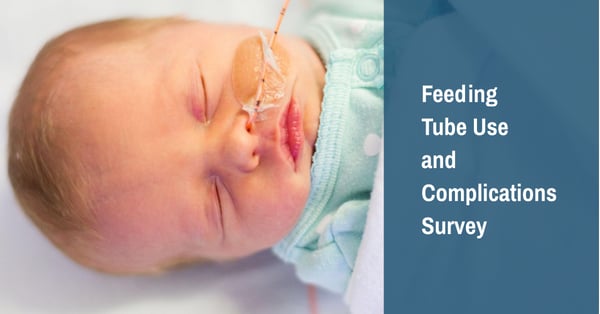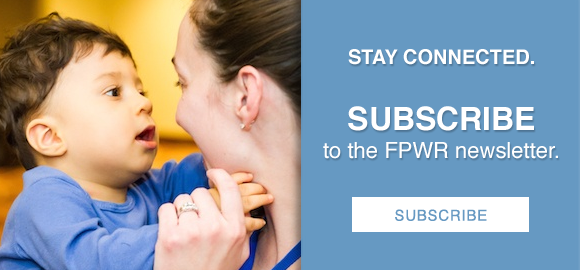Researchers from the PWS CLIC (Clinical Investigation Collaborative) need your help to learn more about the use of feeding tubes in infants with PWS.

Many individuals with PWS have feeding difficulties after birth resulting in a variety of interventions often including the use of feeding tubes. Feeding problems may occur because of poor coordination of the suck-swallow-breathe mechanism resulting from hypotonia or from swallowing food into the lungs (aspiration), for example. Many infants with PWS experience fatigue with feeding and poor weight gain due to insufficient caloric intake. When faced with these issues, the infant’s physician may recommend the use of a feeding tube to assist with growth and development and/or for safety.
There are several types of feeding tubes such a nasogastric or NG-tube (a tube that leads from the nose to the stomach), gastronomy tube or G-tube (a surgically placed tube that allows feeding directly into the stomach), and other, more uncommon tubes such as a naso-jejunel or NJ-tube (a tube that passes from the nose, through the stomach into the small intestine). As a PWS community, we need to better understand how often these tubes are used in the PWS population, how long the tubes are in use to support the feeding needs of the person with PWS, and whether there are any complications resulting from the use of the feeding tube.
Why is this important? Knowing this information can help shape standards of care for future generations of babies born with PWS. As many parents have experienced, standards of clinical care for individuals with PWS can vary greatly from one medical facility to another. For this reason, the PWS CLIC (CLinical Investigation Collaborative) was formed in 2021 comprised of a collaborative group of over 30 clinician-researchers, health care providers, and patient advocates from across North America. The mission of the PWS CLIC is to improve the quality of clinical research and medical care of people with PWS across the lifespan through collaborative investigation and research to support evidence-based care. This group of motivated professionals is working to identify key clinical questions, share observations and develop research projects.
One such endeavor, the Feeding Tube Project, is being spearheaded by Dr. Sani Roy, Pediatric Endocrinologist at Cook Children’s Hospital in Fort Worth, TX, and Dr. Jessica Duis, Pediatric Geneticist from Children’s Hospital in Aurora, CO, who are working collaboratively together and they need your help! We are asking caregivers from around the world to complete the NEW survey, ‘Feeding Tube Use and Complications’, in the Global PWS Registry so these PWS clinician-researchers can gather the necessary data to answer the important questions about the impact of feeding tube use in the PWS population.
This project is just the first of several projects the PWS CLIC is leading and there are more to come! Learn more about the PWS Clinical Investigation Collaborative >>
To begin sharing your valuable knowledge about your experiences with PWS and feeding tubes, click here to login to your account in the Global PWS Registry to complete the ‘Feeding Tube Use and Complications’ survey today! If you do not have a Registry account yet, it only takes a few steps to create your account by clicking here and begin contributing to PWS research from the comfort of your home. Caregivers will first need to complete the ‘Birth History’ and ‘Diagnosis’ surveys before completing the ‘Feeding Tube Use and Complications’ survey if not already done. If you need help, simply email info@PWSRegistry.org or call (760)420-5878 and speak to one of the Registry staff who will gladly assist you.









